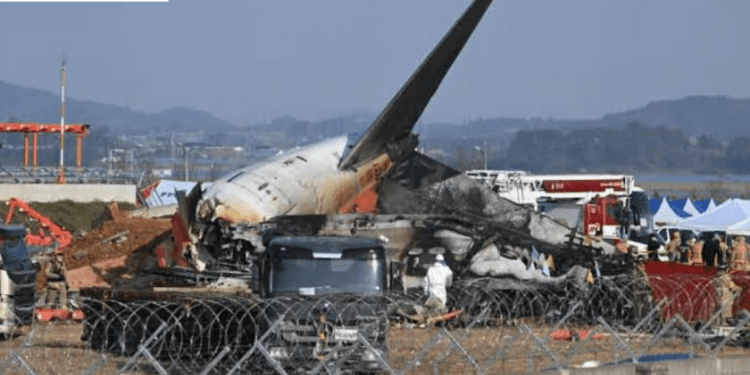South Korea has launched a bipartisan investigation into the Jeju Air crash that killed 179 people on December 29, as authorities focus on uncovering the cause and preventing future aviation tragedies. The Boeing 737-800, en route from Thailand to Muan, crash-landed at Muan Airport, colliding with a barrier and igniting a fire.
In a rare show of unity, South Korea’s ruling and opposition parties agreed to form a 15-member joint task force to investigate the disaster and support victims’ families. The move reflects growing public pressure for accountability, especially after Transport Minister Park Sang-woo offered to resign, accepting responsibility for the tragedy.
Investigators are examining possible causes, including a reported bird strike, landing gear failure, and runway barrier impact. Feathers were found in one engine, raising questions about whether bird strikes contributed to the crash. Lead investigator Lee Seung-yeol said further analysis is needed to determine the exact role of the bird strike.
Jeju Air, under scrutiny for its safety protocols, has reduced international and domestic flight operations. The airline has also announced additional measures to improve safety, including cutting over 180 flights in early 2025. Authorities have barred its CEO from leaving the country pending the investigation.
The tragedy has sparked grief nationwide, with memorials set up to honor the victims. Families and the public are calling for stricter aviation safety measures, as the crash highlights vulnerabilities in South Korea’s aviation sector.
As the task force began its work, political leaders emphasized the importance of transparency and swift action. “This investigation must ensure such an incident never happens again,” a joint statement from the parties declared.


































